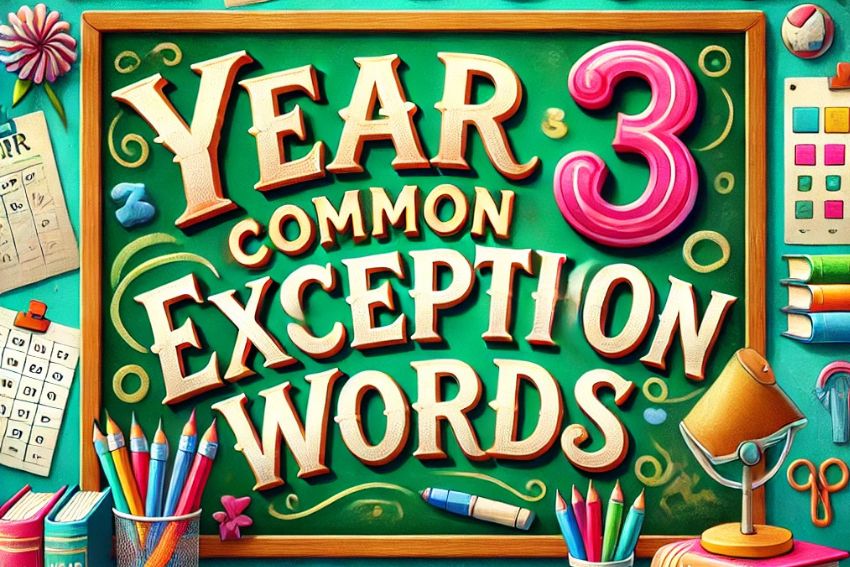Top 11 Plus Creative Writing Tips to Help You Ace Your English Exam
11 Plus Creative Writing tasks can be exciting, but also a bit tricky. In the 11+ English exam, students are expected to come up with imaginative ideas and write them clearly under time pressure. That’s a big ask!
In fact, strong writing skills help students stand out. A well-planned story with rich vocabulary, believable characters, and a clear structure can make a huge difference in exam results. But knowing where to begin is often the hardest part.
This guide is packed with 11 plus story writing tips to help students feel more confident. Whether you’re a parent supporting revision or a student wondering how to prepare for 11+ English, you’ll find helpful prompts and advice here.
So, from story starters to planning techniques, everything in this guide is designed to make writing more enjoyable and more effective.

7 Creative Writing Ideas for 11 Plus
Now that you know why creative writing 11 plus tasks matter, it’s time to get inspired. Below, you’ll find seven 11+ creative writing prompts designed to spark your imagination and get the ideas flowing. These story starters are perfect for 11 plus exam practice, homework, or just building confidence.
Moreover, each prompt comes with practical story writing tips to help you plan and structure your narrative. Whether you enjoy adventure, mystery, or writing from a character’s point of view, there’s something here for every young writer.
Let’s explore these 11 plus creative writing ideas one by one.
Idea 1: “What If…” Prompt
What if your pet could talk? What if you woke up in a different world? These prompts spark curiosity and lead to exciting twists. They’re perfect for 11 plus creative writing practice because they encourage you to think beyond the ordinary. So, just start with one “what if” question and let your imagination take over.
Idea 2: Picture-Based Inspiration
Find a picture and ask yourself: What’s happening? Who’s involved? What happened just before or after this moment? In reality, picture prompts help you build vivid settings and characters. They also train your mind to spot detail, something examiners love in 11+ creative writing prompts.
Idea 3: Genre Challenge (e.g. mystery, fantasy)
Besides, try writing in a specific genre, like mystery, adventure, or fantasy. It’s a great way to stretch your creativity. In mystery stories, build suspense. In fantasy, invent magical worlds. Switching genres also helps you practise different sentence styles, perfect for showing range in your writing.
Idea 4: Continue the Story (from an opening line)
Starting with a given sentence like: “The door creaked open, but no one was there…” pushes you to think quickly and build a plot. Also, this is great training for timed writing. Use these kinds of 11+ creative writing prompts to practise writing fluently from any starting point.
Idea 5: Diary or Letter Format
Writing as a character helps you explore feelings, thoughts, and voice. A diary entry or letter lets you practise first-person writing and show emotion. This format works well when telling a personal story or imagining how someone might react to an event.
Idea 6: Real-Life Experience Turned Fiction
Furthermore, take something from your own life, like a school trip or a surprising moment and add a creative twist. Maybe a normal day turns magical or something funny becomes mysterious. It’s one of the best ways to make your writing feel believable and original.
Idea 7: Persuasive or Reflective Narrative
Not all stories need dragons or detectives. Try writing something meaningful, like a short story that shares a lesson or explores a big idea. This could be about honesty, friendship, or a challenge you overcame. Finally, it shows maturity and makes your writing stand out.
11 Plus Creative Writing: Simple Story Planning Template
One of the best ways to improve your 11 plus story writing is to start with a simple plan. A clear structure helps you organise your ideas before you begin. In the 11+ English exam, planning just a few minutes can make your story more focused and easier to follow.
Use a basic beginning–middle–end format to guide your writing. Think about how the story starts, what problem or event happens, and how it ends. This method works well for all types of prompts and gives your story a natural flow.
For extra help, try using a printable planning template. It’s a great tool for regular practice and a useful part of your 11+ English exam preparation routine.

Top Language and Style Tips for 11 plus Creative Writing
If you want your story to stand out, language matters just as much as plot. One of the best ways to learn is by reviewing 11 plus creative writing examples. They show you how to use words in fun and powerful ways.
Firstly, start with a strong hook to grab the reader’s attention right away. Use vivid imagery to bring scenes to life, and don’t forget to show how characters feel. A bit of dialogue or a surprising plot twist can make your story more exciting.
To improve your writing style and avoid getting stuck, try brainstorming words or phrases before you start. These small habits make a big difference when thinking about how to prepare for the 11+ English exam.
Timed Practice and Exam Techniques
Now that you’ve explored different ideas and language tips, it’s time to put them into practice. One key part of how to prepare for the 11+ English exam is learning to manage your time effectively.
Start by dividing your time between planning and writing. Even in a short exam, spending five minutes on a quick plan can really improve your 11 plus short story writing. It helps you stay focused and avoid rushing halfway through.
In addition, practice writing with a timer to get used to exam pressure. The more you rehearse under real conditions, the more confident you’ll feel on the day. Knowing what to expect in the exam setting, like timed tasks and limited space can make all the difference.
11 Plus Creative Writing: Example Story Snippets
Sometimes the best way to learn is by seeing how it’s done. These short example snippets show what strong 11+ creative writing can look like. Each one highlights how to use structure, vocabulary, and imagination effectively.
You’ll see how a story begins, how characters are developed, and how the ending ties everything together. These examples are useful for spotting techniques like dialogue, setting description, and emotional tone.
They’re also great for parents who want to support their child’s writing at home. Use them as inspiration or as models to practise with your own ideas.
Conclusion
Thus, getting better at 11+ creative story writing takes time, but with regular practice, it becomes much easier and more enjoyable. Try using one story prompt each week and focus on planning, structure, and adding more detail to your writing.
Remember, the best way to feel confident is to build a routine. Use the tips in this guide as part of your 11 plus English exam preparation,, and revisit the examples when you need inspiration.
If you’d like more support, working with online 11 plus English tutors can make a big difference. They can offer personalised feedback, boost your confidence, and help you master key skills at your own pace.
So, keep practising, keep writing and enjoy the creative journey!
FAQs:
How to prepare for 11 plus creative writing?
Start by practising regularly with a variety of 11+ creative writing prompts. Focus on building stories with a clear beginning, middle, and end. Use vivid description, develop your characters, and add a twist if you can. It also helps to read 11 plus creative writing examples to understand what examiners look for. Keep a writing routine and try timed practice to improve confidence under pressure.
How to prepare for English creative writing?
Use a mix of reading and writing activities to develop your skills. Try writing short stories based on different genres or real-life experiences. Following simple 11 plus story writing tips: like planning first, using varied sentence styles, and adding emotion can really strengthen your work. As part of your 11+ English exam preparation, practise with time limits and explore different writing formats like letters or diary entries.
What are some common 11+ creative writing topics?
Common 11 plus topics include adventure stories, mystery, diary entries, and stories based on real-life experiences. These are often used in 11+ creative writing prompts to test imagination and structure. Practising a variety of themes is a smart part of your 11+ English exam preparation.
Why is planning important in 11 plus short story writing?
Planning helps you organise your thoughts and structure your ideas clearly. In 11 plus story writing, using a beginning–middle–end format makes your writing easier to follow. It also saves time during the exam, which is a key part of 11+ English preparation.








